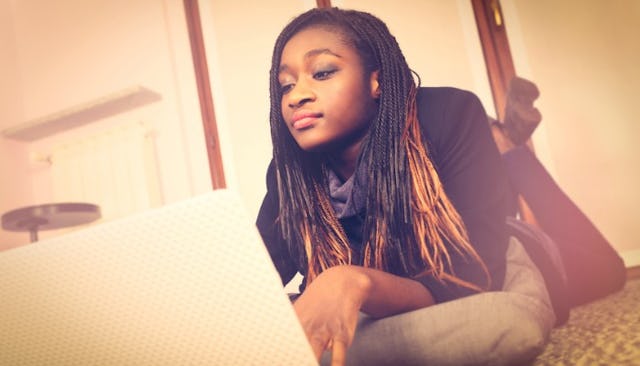Talking Alton and Philando With My Newly Driving Black Teen

Most mornings, my teen daughter, adopted from Haiti, wakes up and does two things: she reads the world news on her phone and asks me if I can take her out driving that day. She is obsessed with both.
Yesterday, she emerged from her room and said nothing. After a long snuggle session, less common in these teen years, and some time milling about the kitchen, she breathed deeply and spoke: “Mom, did you read the news today? The news about Alton Sterling?”
I nodded and asked if she needed to talk. Her little brother, adopted with her from Haiti, entered the room and I saw her clam up.
She didn’t want him to know.
It is a conundrum I wrestle with every single time a black person is killed by police, falsely accused of a crime, attacked by white supremacists or racists; a question I ask myself every time Trump denigrates immigrants, every time he spews hatred or ignorance towards people who look like my children. Do I tell them this time?
She knows though, at her young age, that we need to keep sharing these things. We all need to process together and then work through our individual responses. We, their white parents and white sister, need to be a part of the solution, speaking out on our kids’ behalf. They, my black teens, need to remind themselves, yet again, the rules to follow when stopped by the police.
It is a somber reality, something I desperately want other white parents to understand when they question the notion of white privilege. It is a barrier that exists between my daughter and her white friends, a silent weight that presses down on the possibilities that could grow from their friendship.
Later, she sat on the couch, her dog pressed up against her side, searching for a new phone case, asking if she could purchase the one with the black power fist on it, or maybe the one with the beautiful black woman with a crown, an African princess.
She did not ask to drive yesterday.
Today, when she awoke, she emerged from her room without having read any news.
“Maybe don’t read it quite yet,” I tell her. “Maybe prepare yourself. Talk to me. Take some time.”
I paused to assess the moment. I don’t want to tell her either. I want to shield her from this. But she is months away from getting her own driver’s license, months away from what should be the happiest day of her life to date.
She is months away from wondering every single time she gets into a car to drive if she will be stopped by the police that day, and if so, will she end up with the same fate as Alton and Philando. Will her photo be slathered across media?
Is her social media free of pictures that might be mistaken for bad behavior? Are her grades good enough, her activities sparkling enough that she can’t possibly be the subject of the smear campaign that would inevitably follow? These are the things my black teen thinks about when driving with her permit. She doesn’t have the luxury of imagining driving herself to the beach or to meet up with friends.
“His name was Philando Castile,” I will tell her. “He was a straight-A student in high school. He was reaching for his ID. He told the officer he was reaching for his ID. But the officer shot him four times anyway. His girlfriend’s 4-year-old daughter was in the backseat.”
While I prepare to tell her later this morning, after her dance class, when she is always the most relaxed, I open my phone, click on Amazon, and order for her the phone case with the black princess on it. I throw in the one with the black power fist as well.
It seems trite to be thinking of phone cases. It is what I can do in this minute. I have to break her heart later this morning. She will imagine Philando’s family. She will imagine her own family. She will imagine herself.
I suspect she will not ask me to take her driving today either.
This article was originally published on